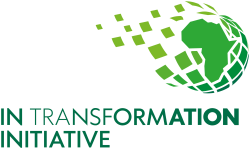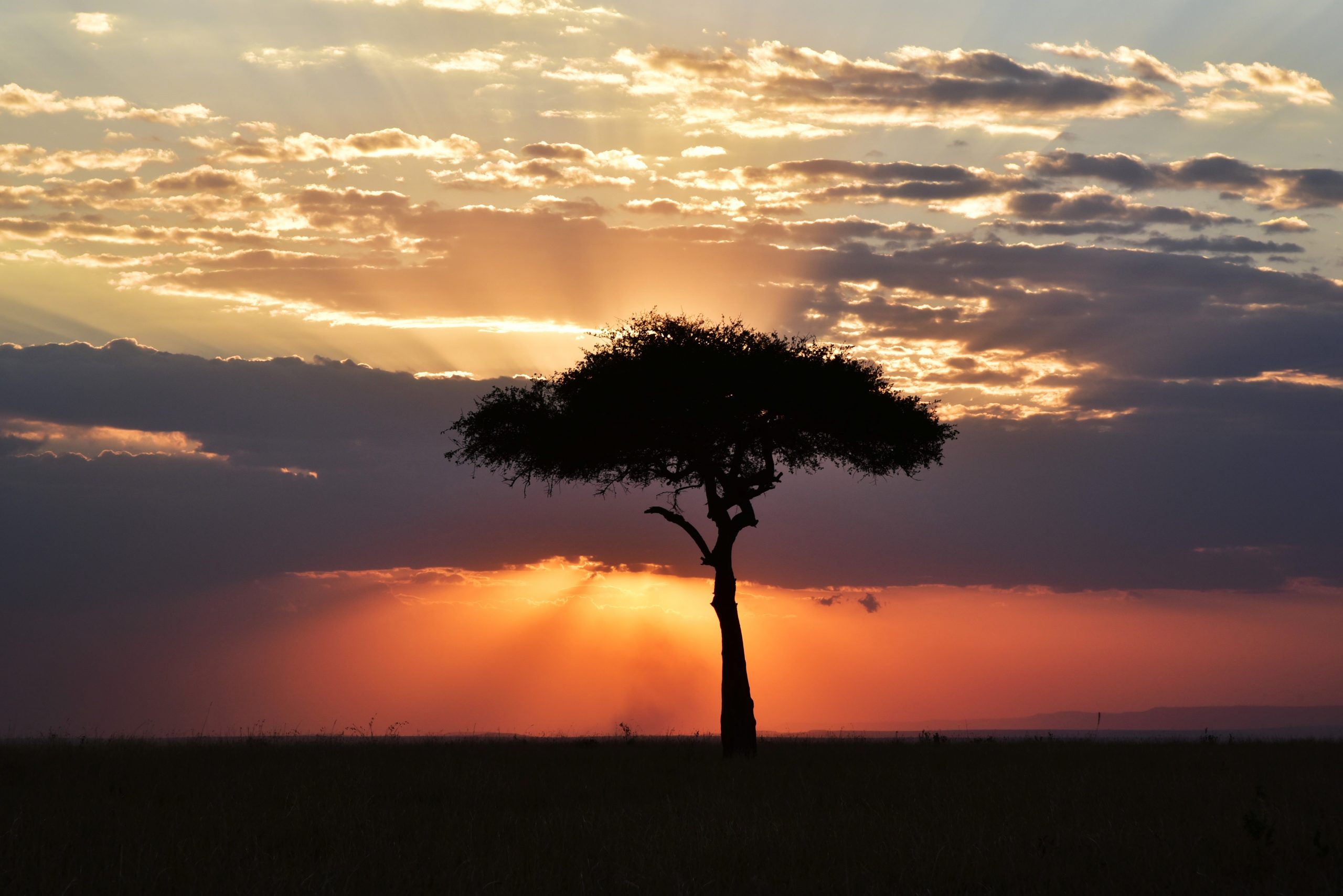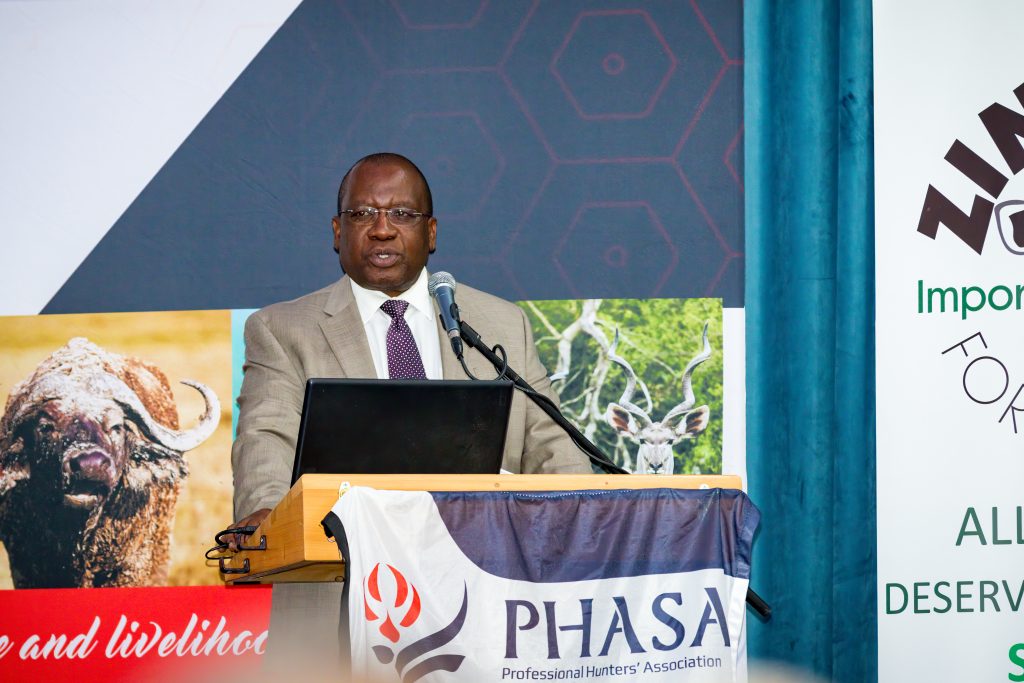The following address was made by Mr Daniel Ngwepe, in his capacity as a senior advisor for the Public Private Growth Initiative (PPGI), during the Professional Hunting Association of South Africa’s (PHASA) 2022 Convention and Annual General Meeting, held on 18 November 2022 in Hartenbos, Western Cape.
I am deeply honored to be invited to speak at this august event, and grateful to the PHASA leadership for the opportunity to contribute to the important topic of breaking barriers. Thank you to the PHASA staff, in particular to Tersia for the excellent arrangements made for my participation here this morning. I am also delighted to see some familiar faces, my friends Paul Els, Riaan Jacobs, Barry York, and Prof Peet van der Merwe, and indeed look forward to making new acquaintances.
Let me say right up-front that I am not a hunter, but I am a great meat lover. I come from the bushveld and of course, grew up at a time when hunting was key to supporting protein and nutrition in my community. It is no surprise that many African languages, including my mother tongue, Sepedi, are littered with hundreds of animal and hunting metaphors. Over time, I have become a great supporter of hunting as I deeply started to understand and appreciate its valuable impact to conservation and tourism, and the immense contribution that the sector makes to our economy, which as you all know, has been on the ropes since before the outbreak of Covid 19. The pandemic of course exacerbated an already struggling economy, unable to grow and create the much-needed jobs. Regulatory frameworks fail to generate growth and employment, deepening the crisis we are in. What we have seen subsequently were hundreds of small businesses closing shop, and more job losses, resulting in the official unemployment rate in the country at the moment hovering at 33%, and over 70% in the case of our youth. In my estimate, youth unemployment is not only the biggest risk to the future stability of our country, but a threat to our collective national efforts toward social cohesion.
The mood in the country currently is one of disillusionment, anger, alienation, uncertainty, resentment and resistance because of persistent inequality and a lack of social capital, growing unemployment, poverty, rampant crime and other social ills. Someone once said South Africa is a rich country with a lot of poor people, and if we as a free society are not able to take care of the poor, we will not be able to save the rich. Most South Africans that I know, will only be too happy with the basics in life: a roof above their head, food on the table, and clothes on their back. We are resilient, hardworking and selfless people who on a normal day, care deeply about each other. I think the French describe us best: Ci cava bien che tous, cava bien che moi. That is what defines us as a nation.
It is important of course that, in addressing the topic of breaking barriers, we should remember that everything has context. Apartheid came to an end in 1994, and under the constitution and the bill of rights that followed, we can now hold elections and vote. The new constitution would guarantee that we the people, can govern. For a while, particularly in the Mandela years, it looked like the ideals of freedom had prevailed and the benefits would eventually touch all of us. The liberation warriors would be noble, honest and accountable to “we the people”. They would work hard, to ensure that every South African would have a fair shot at life.
Alas, it was not long before the hysteria evaporated, and the reality of the true state of affairs set in. The newly minted politicians betrayed society’s trust and became the biggest wrecking ball of everything we are trying to build. They plowed through the wilderness and wouldn’t stop to ask for directions, and trying to flag them down to change course was like pushing a boulder up the hill: unemployment, especially among the youth spiraling out of control, the re-emergence of social protests against liberation icons, persistent inequality, crime, erosion of trust in key institutions, corruption, poor institutional capacity and leadership, theft of state resources, scandals, bribery, nepotism, you name it.
And even as the government faltered, a hopeful and optimistic people that we are, we kept the faith, confident that the next day was going to be better than the day before. You can blow smoke up people’s backsides only for so long. At some point, they’ll figure out what is going on, and we are at that inflection point where we no longer believe the lies, the apartheid bogeyman, the empty promises, the ministerial task teams, the inconsequential plans and frameworks, and the language of deceit and obfuscation.
Government contracts began to have names on them, jobs and BEE opportunities were reserved for cadres, and honest, hardworking everyday South Africans, who live by the rules and pay what they owe, were increasingly shafted. As they say in Angola, if you want to eat, you must know someone in the kitchen. I talk to regular folks from all walks of life in my community, and terrifyingly, some of them say to me that life was better under apartheid, because at least we could get jobs and feed our families. And you know we are in deep trouble when people are prepared to give up their freedoms and civil liberties just so they can have a job. This is a terrible indictment on all of us as a civilised society.
The question that arises therefore is, how do we first as citizens, and second, as members of various formations such as the hunting sector, take a strong and undiluted stand against these dangers to our democracy, and to our values? How do we do this robustly, without being timid, without walking on eggshells, tip-toeing around the issues or being overly cautious and self-censoring? How do we as leaders, put the country first in the face of adversity and ignore the possible backlash and the usual labels, the bourgeoisie, counter-revolutionaries, the racists? How do we break barriers, build bridges, and not walls, to enable constructive engagement in the interest of our collective prosperity as a nation?
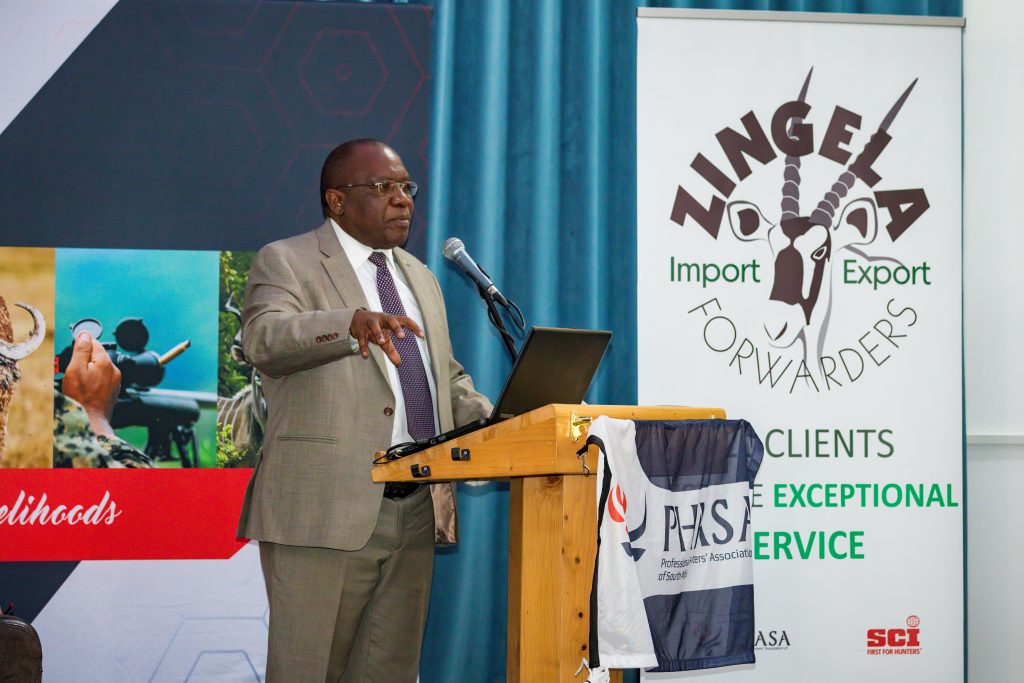
After all this is our country, yours and mine. Everything we do, every day, must have at its core, the objective of leaving this country better than we found it. This is after all, a country that we do not inherit from our ancestors, but one that we borrow from the future of our children.
In thinking about these questions, my answer is unequivocal: “lojale verset”. The concept, first conceived by NP van Wyk Louw in the 1930s, is as relevant today as it was all those years ago. The hunting sector, and indeed each and every one of us, should find creative and innovative ways to locate ourselves between the tensions of loyalty and resistance. Civil society and industry organisations such as PHASA should push back hard, and never take their foot off the gas pedal. Some of the best patriots are those who speak up and push back when governments go astray, not out of verset for the sake of it, but out of “lojaliteit” to the principles on which we as a country were founded.
We know the dangers of complacency all too well. There are a few things we can do to break barriers, come together as a nation, and work for a secure future that leaves no one behind:
- First, we must build trust between the government and the private sector. That requires both parties to act with the highest levels of integrity, transparency and honesty, and no boundaries in calling each other out in the event of wrongdoing.
- Demand accountability and respect for constitutionality, for a productive public sector and the defence of strong and independent institutions. All of us are and must be equal before the law.
- We should insist on improved institutional capacity, market led interventions, leadership and policy certainty, which impact lives and livelihoods. Get rid of incompetence and the deadwood in government without hesitation, especially at the coal face of service delivery. When we know what needs to be done, let us insist on how it will be done, by whom it will be done and when it will be done. Engage actively with the authorising environment, offer alternative solutions in a collaborative and mutually supportive way.
- Partnering between the public and private sector on land reform and transformation/inclusivity – 25 years is 25 years – power of eminent domain (expropriation without compensation).
- Build inclusive winning coalitions that put people first – utilise all available talent, and heaven knows we have talent in abundance.
- Connect, communicate and collaborate – Society is a giant penguin huddle. Bolokini kelen te se ka bele ta.
Let me say something briefly about the hunting sector, and how you might contribute to the project of breaking down walls, and build bridges.
Wildlife has become a major industry in South Africa. The good news is that our government supports the role of regulated professional hunting in nature conservation and economic growth, because they value its contribution to addressing poverty and unemployment. We all agree that hunting is not some heartless, barbaric brutality committed by depraved people. We know its economic benefits, it is essential for conservation and biodiversity, generates revenues for local authorities, nutrition, supports education and other rural social development causes, supports travel and tourism and the hospitality industry, bolsters rural communities through job creation while supporting small businesses.
In short, if landowners are expected to support the wildlife on their land, but they have no rights to benefit from wildlife, then they do not have any incentive to support habitat protection and biodiversity conservation. It is no more complex than that. We all support legal, ethical hunting of indigenous wildlife within the ambit of sustainably well managed populations. The confusion and misconception of the role of hunting is mostly caused by misplaced debates on conservation driven by animal rights activists from their ivory towers. Standing up for animal rights is the right thing to do, we should all stand up for animal rights, because none of us want to see savage cruelty to animals. But surely a purely animal-rights based, protectionist, anti-sustainable use approach to wildlife management cannot be good for conservation. Some people argue that animals are sentient beings and should be left alone. Left alone to overpopulate and exceed the carrying capacity of the land? Left alone to be killed when they are in conflict with the livelihoods of rural communities? Left alone to be poached by people who have no interest in conservation? Sometimes, well-intentioned but poorly informed efforts to influence conservation in Africa seriously undermine good conservation policies and best practices.
It is important therefore for organisations such as PHASA, to always maintain the highest ethical and professional standards, and to be mindful of these sensitivities in relation to the issue of hunting. It is also vital for PHASA to provide ongoing communication and enlightenment to various stakeholders, educate communities, tourists, visitors, policymakers, regulators and civil society generally about the hunting ecosystem, its impact on conservation, what drives conservation, the role of incentives, the markets and what sustainable wildlife management is all about.
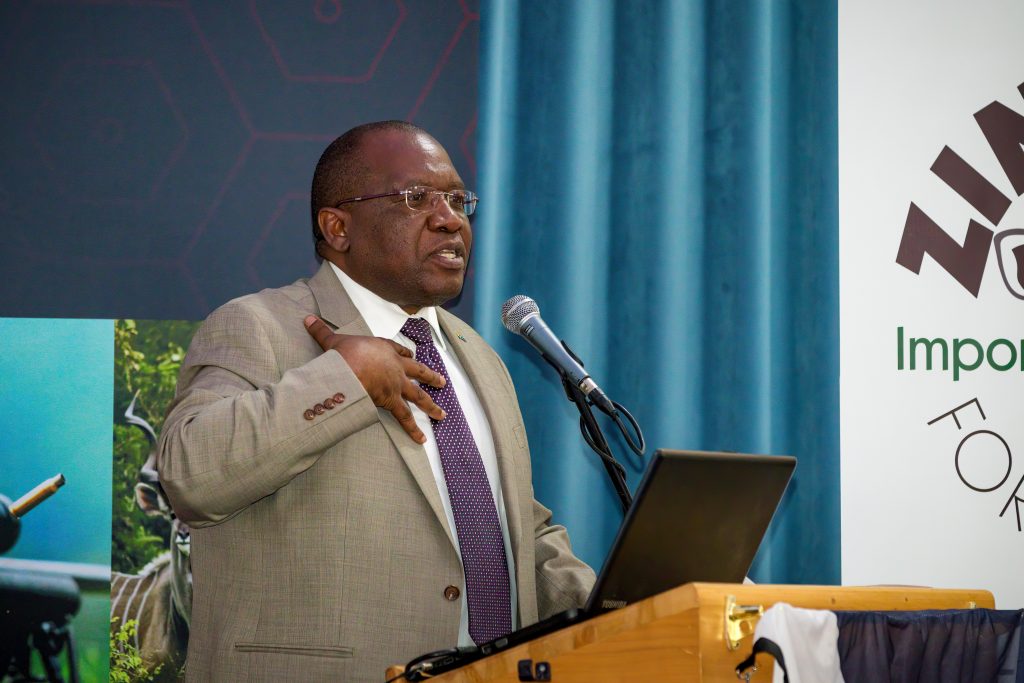
It is important therefore for organisations such as PHASA, to always maintain the highest ethical and professional standards, and to be mindful of these sensitivities in relation to the issue of hunting. It is also vital for PHASA to provide ongoing communication and enlightenment to various stakeholders, educate communities, tourists, visitors, policymakers, regulators and civil society generally about the hunting ecosystem, its impact on conservation, what drives conservation, the role of incentives, the markets and what sustainable wildlife management is all about.
Tell the detractors that wildlife is protected here in South Africa because privately owned land under game management is about three times that of the national parks. Tell them the sector provides in excess of 17 000 job opportunities. Tell them the game headcount on registered private land is 3 to 4 times the headcount of game in public conservation areas. Tell them the hunting sector provides a cushion against possible animal extinction, and realistic policies are required to mitigate against that risk and many others, with the looming impact of climate change threatening to further damage an indispensable natural resource. Members of this organisation should do more, and work tirelessly and reach out to the uninformed. Identify allies and turn them into champions, as well as develop strategies to engage opponents and detractors. As we say in Africa, until the lion learns how to write, every story will glorify the hunter.
Breaking barriers
- We have a shared heritage and sense of history, and should actively support moral and ethical values. Politics and investment must not be driven by partisanship, but instead, by our collective desire for prosperity and lifting all South Africans out of poverty. I have a bridge to sell to anyone who can demonstrate to me, that current policies support the Matabane community in the Waterberg, which sits on an 8k hectare piece of prime land, that they successfully claimed back through the land claims process, but from which, 10 years later, they derive no value because the government will not let them decide what they should do with their rhino horns should they decided to keep rhino on their property.
- As a student of German Philosopher Emmanuel Kant, I am a proponent of treating other human beings always as an end in themselves and never as a means to an end. Human beings are autonomous, rational beings, with the ability to determine for themselves the difference between right and wrong, or what is good and what is evil.
- As a country, we are blessed to be a diverse multicultural nation and should learn to talk to each other, not about each other or over each other. If anyone thinks that the political discourse in our parliament today represents the best of us, I am afraid their standards are too low.
- And finally, we should maintain an unflinching commitment to the cause. Stick to our commitment like white on rice. Chicken and pig Reagan.
As I get ready to hand back the microphone, let me say this. If you ask me to list the countries I have visited, it is probably easier to give you a shorter list of the countries I have not visited. I have lived in Europe, I have lived in North America, I have visited most of Asia, Latin America and the Caribbean, and I’ve been to almost all African countries. And I have yet to find a country that I love more than I do this one. We are the most industrialised in the history of Africa, we are the last best hope for man on this continent. We punch above our weight, we are creative and innovative, we are entrepreneurs who build successful businesses, and it is no wonder that the richest person on earth comes from this country. We fall in love with the problem, and not with the solution.
I read somewhere the other day that the best engineer South Africa has ever produced was someone called Hendrik van der Bijl, who invented the first intercontinental telephone in America, and came back home at the invitation of the government of the time, to start Eskom, Armscor, Iscor, Transnet and Safmarine. He believed in public utilities for the people, and not in capitalism, and when he died, he had no more than a house and a car to his name. Let us remember that everything we are destroying today, was once built from scratch by great men like Hendrik van der Bijl.
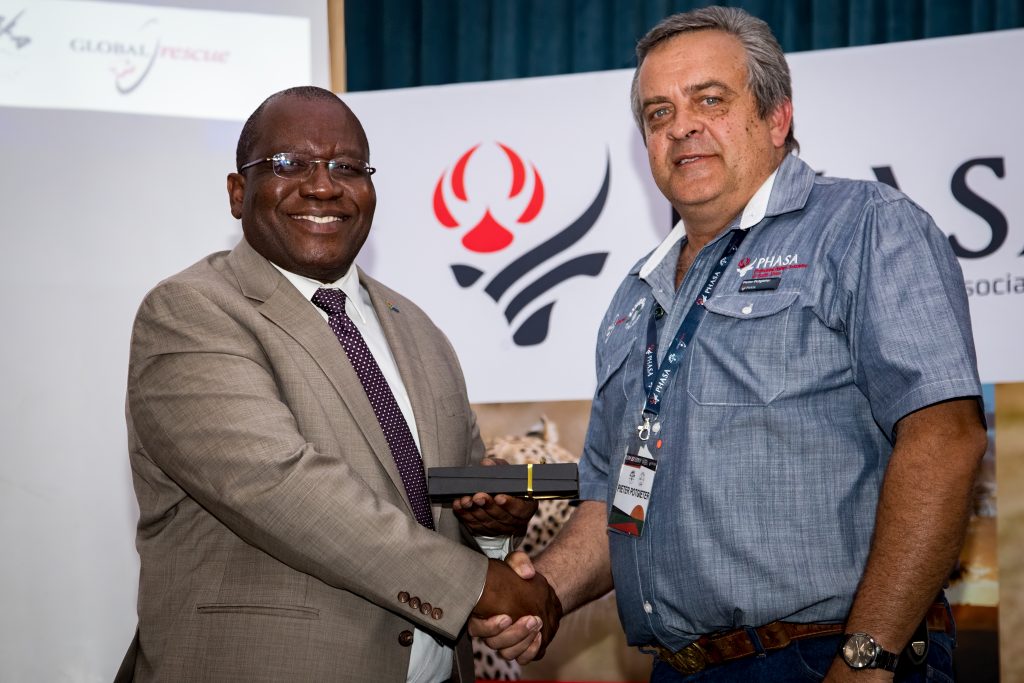
Our country requires all of us, civil society, business and government to commit the bacon, like Mandela did, and not just be happy to merely contribute the egg to the breakfast. The solution to many of our challenges lies in an agile, practical, outcome-based, transformational, inclusive and job-creating bottom-up approach to our collective development goals. And let us listen intently, and purposefully to the resounding of the echoing crags over our everlasting mountains as our national anthem enjoins us to do.
Good luck with the rest of the conference deliberations, and thank you to PHASA and to all of you, for what you do for the prosperity of this beautiful country. “Julle is ‘n belangrike ekonomiese magsblok, waarsonder die land nie kan klaarkom nie. Hou maar die blink kant bo, want die stryd is altyd die moeite werd.”
Thank you again, re a leboga. May God bless you, bless your efforts, and may God bless our great nation.
